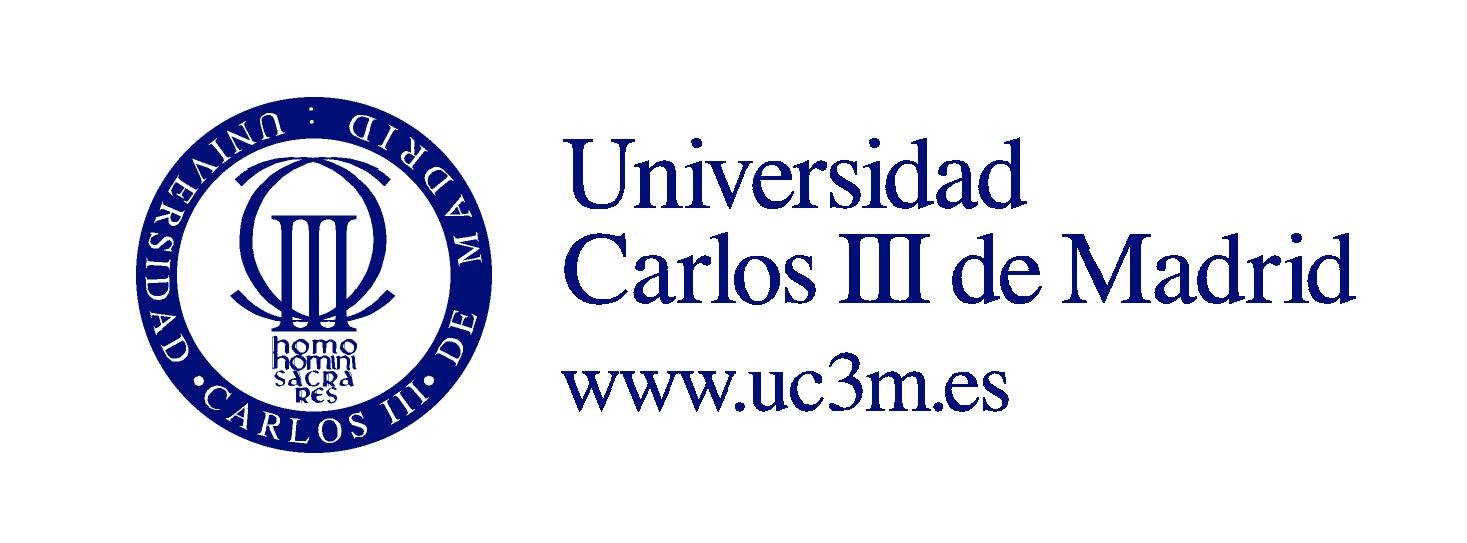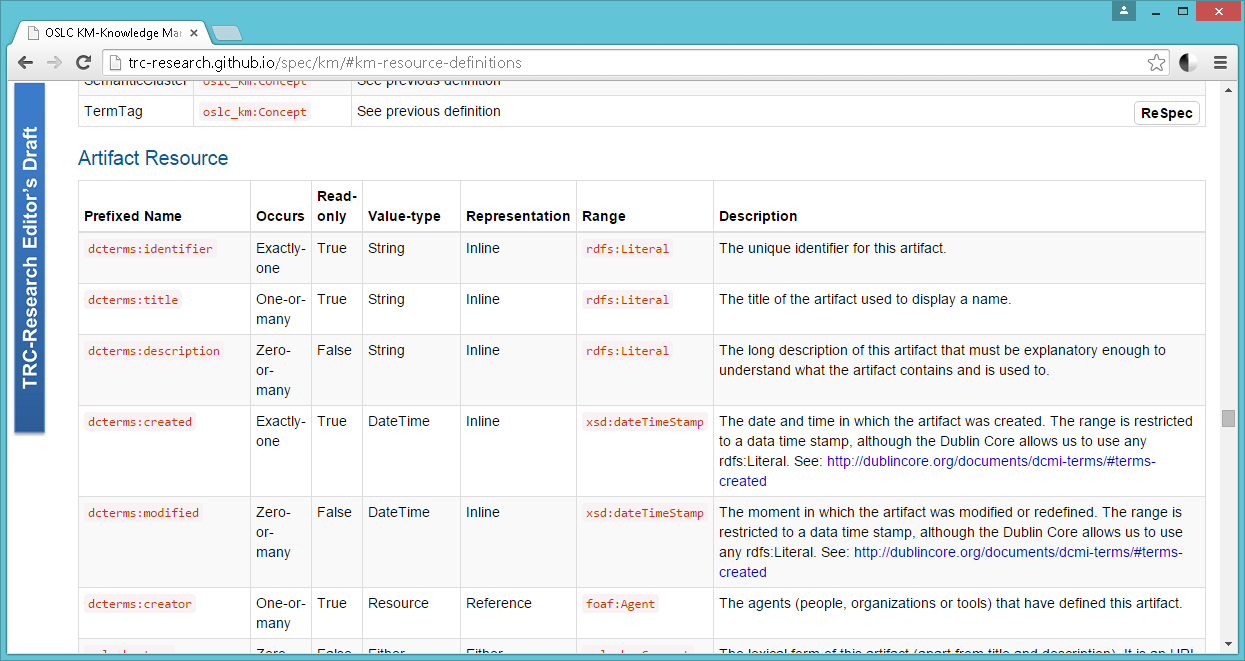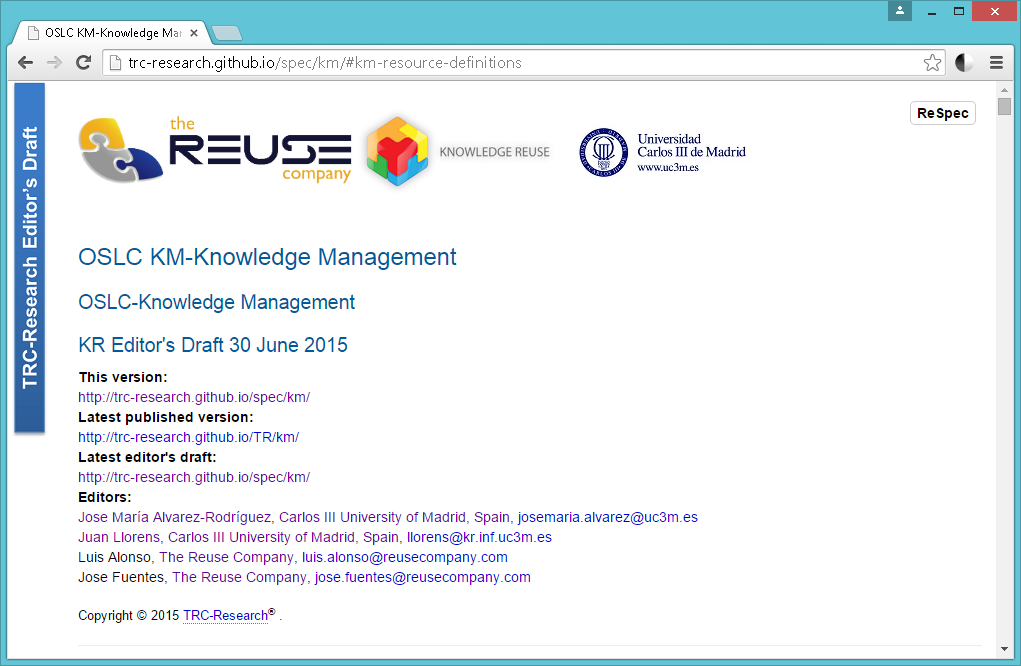OSLC-KM
A Knowledge Management specification for OSLC-based resources
Jose María Alvarez-Rodríguez, Juan Llorens, Manuela Alejandres and Jose Fuentes
INCOSE IS 2015, Seattle, US
Knowledge Management
in a nutshell

Adapted from: S. McIntyre, M. Gauvin, and B. Waruszynski, “Knowledge management in the military context,” Can. Mil. J., vol. 4, no. 1, pp. 35–40, 2003.
Representation
Services
COMMON
Reuse
Human-centric
Natural language
Major objectives
Representation
- Formats
- Protocols
- Query Languages
- Objectives
- Budgets
- ...
...a text?

E.g. A requirement
"When the voltage level is below 11.5v the battery shall send 'a low battery load level' message to the power control systems"
...an UML diagram?

...a Modelica physical system model?
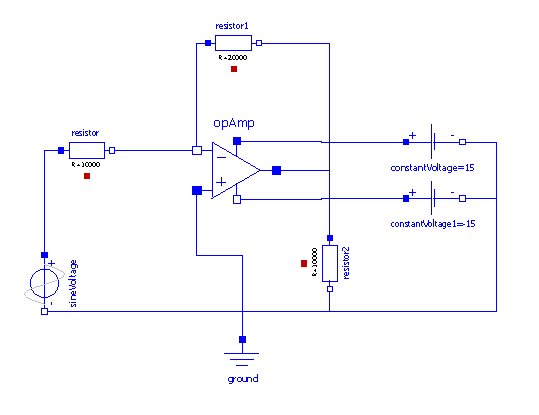
...an E/R model?

...a PBS?
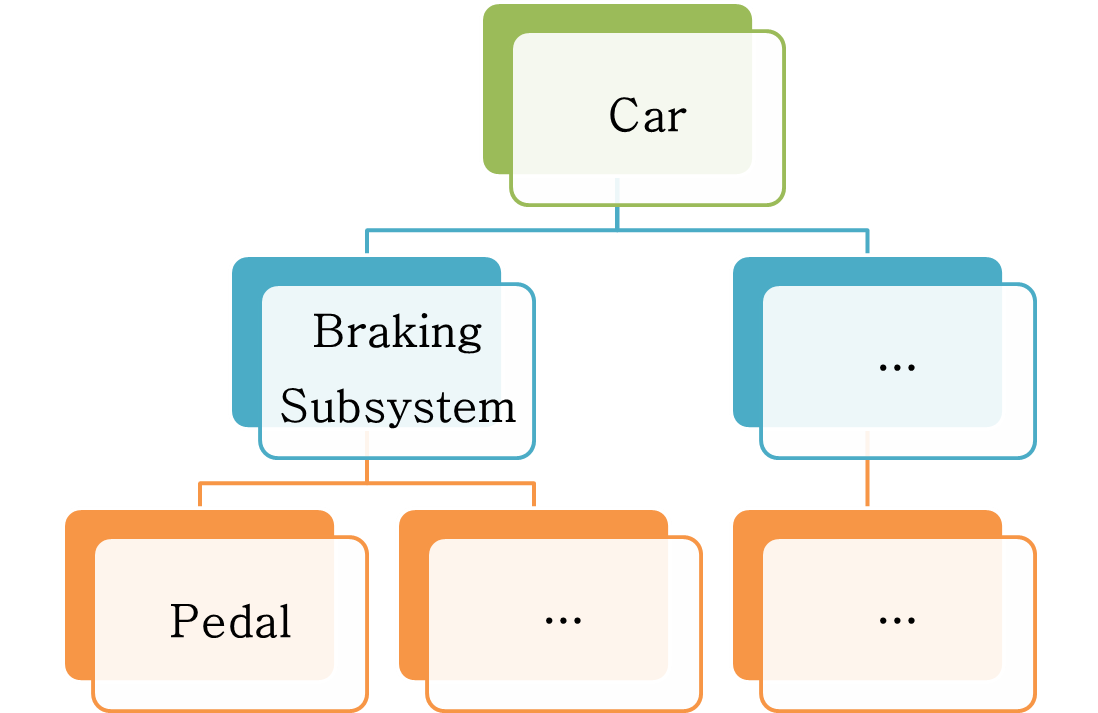
...a graph?
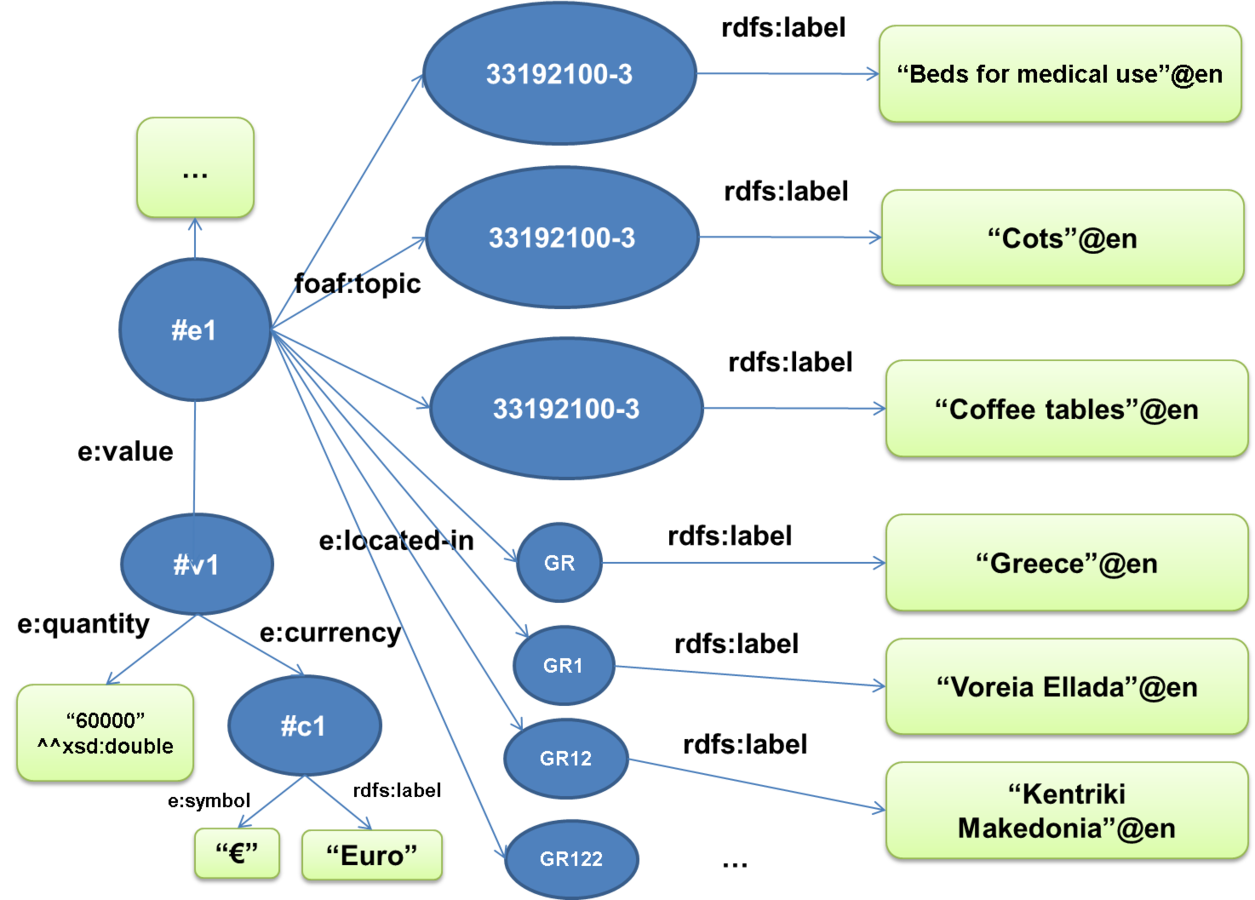
...even a person?

How many different types of artifacts are generated during the development life-cycle?
tools, formats, protocols, query languages, etc.
Needs and Challenges
- A common representation model
- Interoperability
- Knowledge Management processes
- Natural language to express queries
- ...

A remainder...
Natural language
as main
communication mechanism
#me also speak SQL, SPARQL, XPATH, etc...
Services
- Semantic Indexing and Retrieval
- Quality checking
- Visualization
- Traceability
- ...
Semantic indexing and retrieval?
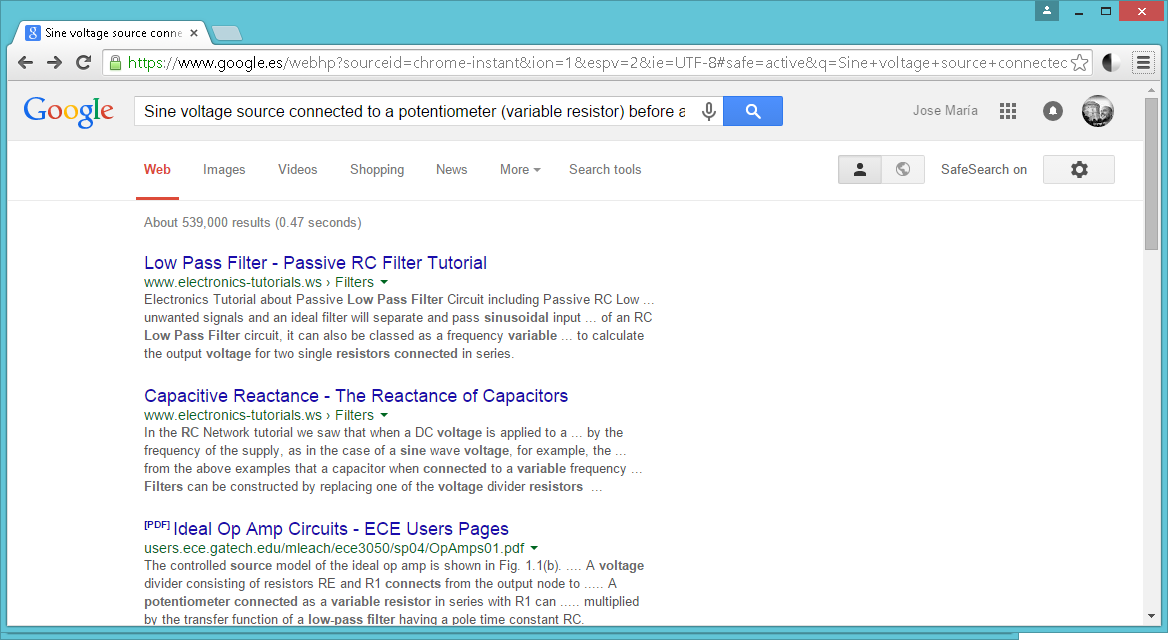
"Sine voltage source connected to a potentiometer (variable resistor) before a RC filter"
|
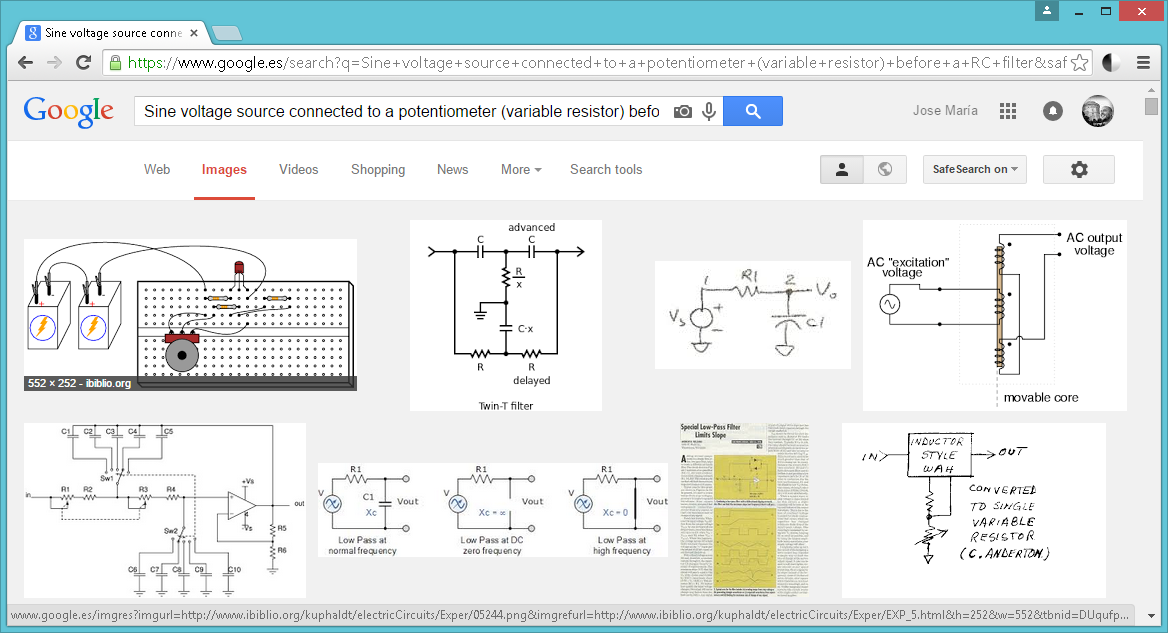
Results but types of artifacts?
...quality?
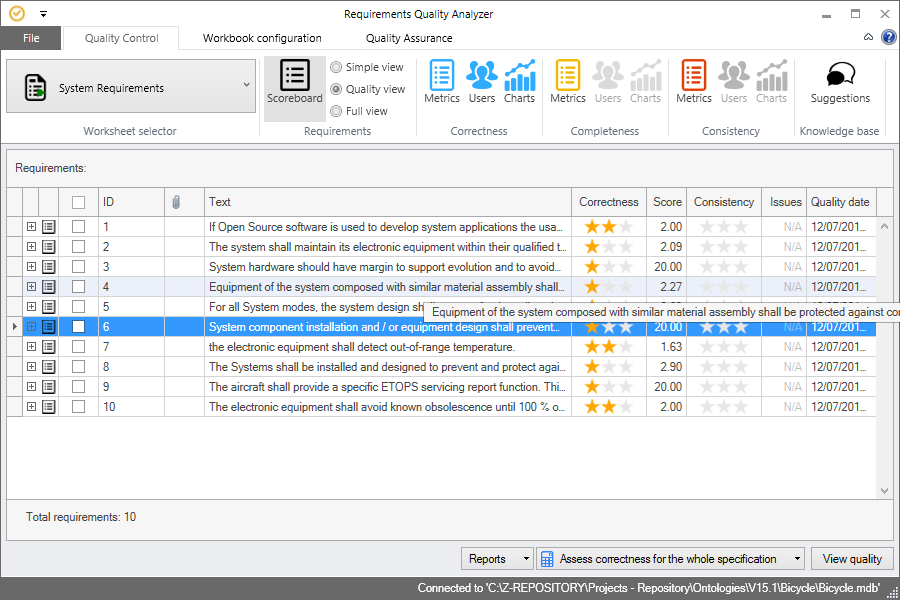
E.g. Requirements
...and for any artifact?
...visualization?


Specific
Generic
...traceability?
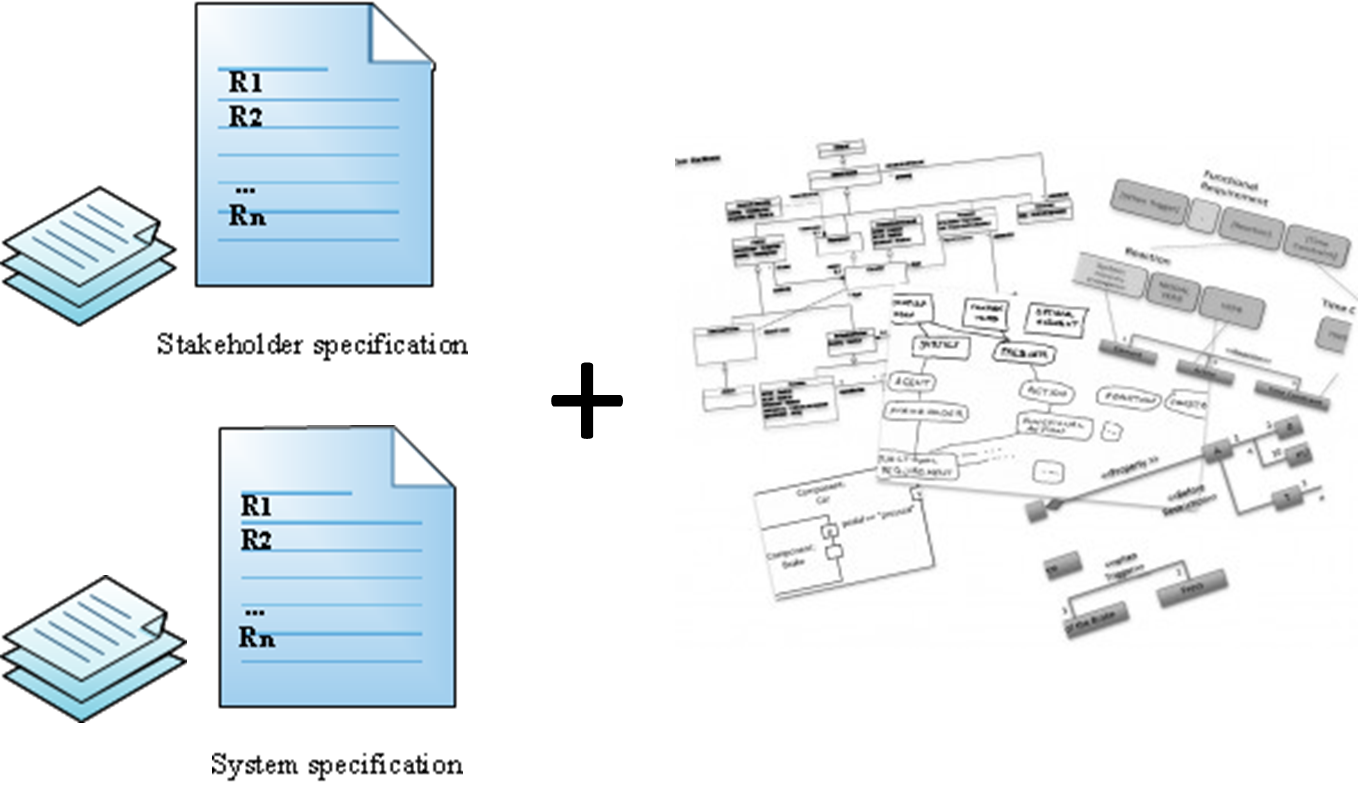
E.g. Requirements and Models
...and for any artifact?
Needs and Challenges
- A common representation model
- Interoperability
- Knowledge Management processes
- Natural language to express queries
- ...

KCSE
Knowledge-centric Systems Engineering
...and now...
Interoperability
Open Services for Life-cycle Collaboration


OSLC
OSLC
Prelimnary Evaluation
- Great effort on interoperability
- Community (industry) effort
- Different types of artifacts (resource shapes)
- OASIS standards (Core, Change Management, etc.)
- ...
...still work to do...
- Define new domains, resource shapes, etc.
- Common services
- Perspective of knowledge management (beyond data exchange)
- ...
Wrap-up
- Knowledge Management is a key activity in any organization
- It requires:
- A common representation model
- A set of common of services
- Interoperability
- Process different types of artifacts
- ...
- In the SE domain, this perspective is becoming crucial
- Upcoming domains and resource shapes in OSLC
OSLC-KM
New domain
New resource shape
Knowledge Representation
- Different schemas
- ...paradigms
- ...purposes
- ...execution engines
OSLC Context
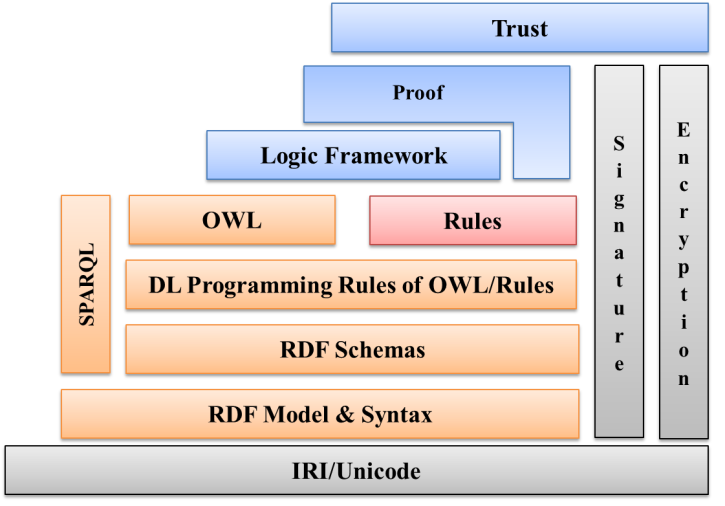
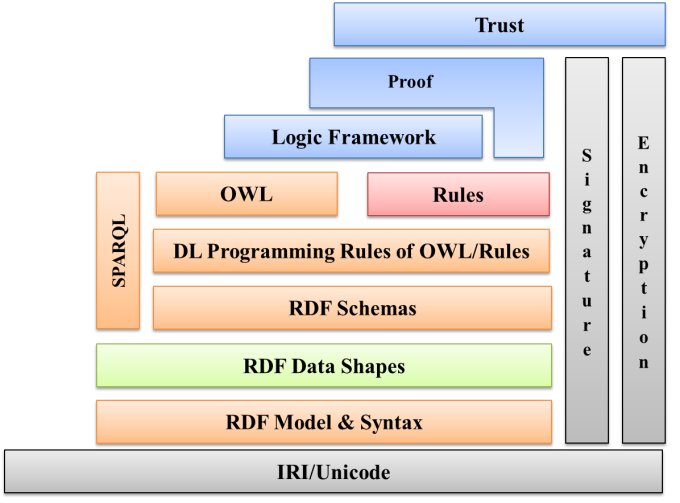
Semantic Web Stack 2005
Semantic Web Stack 2015
RDF
Resource Description Framework
- Common & shared Data model
-
Triples
- (subject, object, predicate)
- Binary relationships
- Underlying Directed Graph
- W3C Recommendation (2004)
- Query languages
RDFS
RDF Schema
- Data modeling for RDF data
- Classes
- Properties (domain & ranges)
- RDF serialization
- W3C Recommendation (2004)
OWL
Ontology Web Language
- Vocabulary for defining formal ontologies
- Logic-oriented
- RDF serialization
- Flavours (2.0): EL, QL, RL
- W3C Recommendation (2012, v2.0)
RIF
Rule Interchange Format
- Exchange of business rules
- Rule-oriented
- Flavours: Core, PRD, BLD, etc.
- XML serialization
- W3C Recommendation (2013, v2.0)
RSHP
Relationship "arship"
- Property Graph
- Any kind of relationship
- Arity and Cardinality
- Industry-oriented
- Native tool support
- Queries based on natural language
- First publication 2004
Others
- SBVR
- Semantics of Business Vocabulary and Rules
- ODM
- Ontology Definition Metamodel
- RAS
- Reusable Asset Specification
Preliminary Evaluation


-
RDF good option for exchange data
- Restrictions: arity and cardinality of relationships, lack of native tools, logics, etc.
-
RDFS and OWL
- Oriented to define formal ontologies
-
RSHP
- High level of Expressivity
- Native tool support
- ...
Approach
OSLC
(Data Exchange)
RSHP*
(Internal representation: metadata+contents
and services)
The Specification
Shape for KM resources
Metadata+Contents
Mapping to RDF resources
OSLC Overview
Situating contributions...

OSLC Overview
Situated contributions...
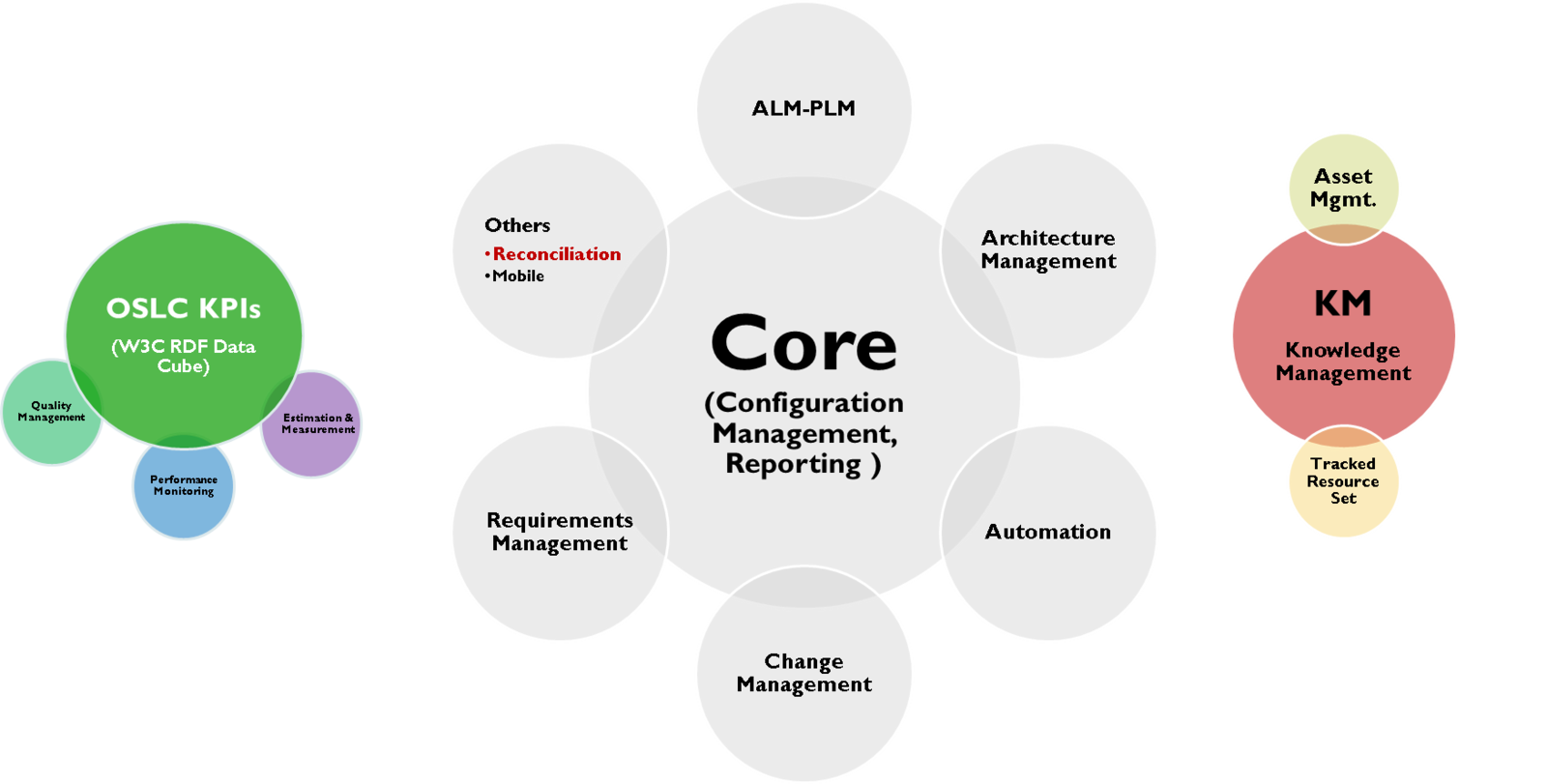
Resource Shape

Based on the W3C SKOS Recommendation
Simple Knowledge Organization System
OSLC Core
Provenance*
Access (W3C HTTP Access)
Metadata (Dublin Core, traces, etc.)
Contents (resource shape)
Visualization (SVG)
Summary of Properties
Properties
All in one...
What about services?
Functional architecture

Implementation
Knowledge Manager by
The REUSE Company

Vocabulary
& Conceptual Model
- Normalization
- Standardization
- Suggestions
- X Breakdown Structures
- ...
Patterns
- Restrictions
- Examples
- Suggestions
1-Listing the concepts of a domain vocabulary

2-Standardize a term or text-based description

3-Get synonyms for a term or a text-based description

4-Get the list of patterns
to guide the writing of requirements

Real Example
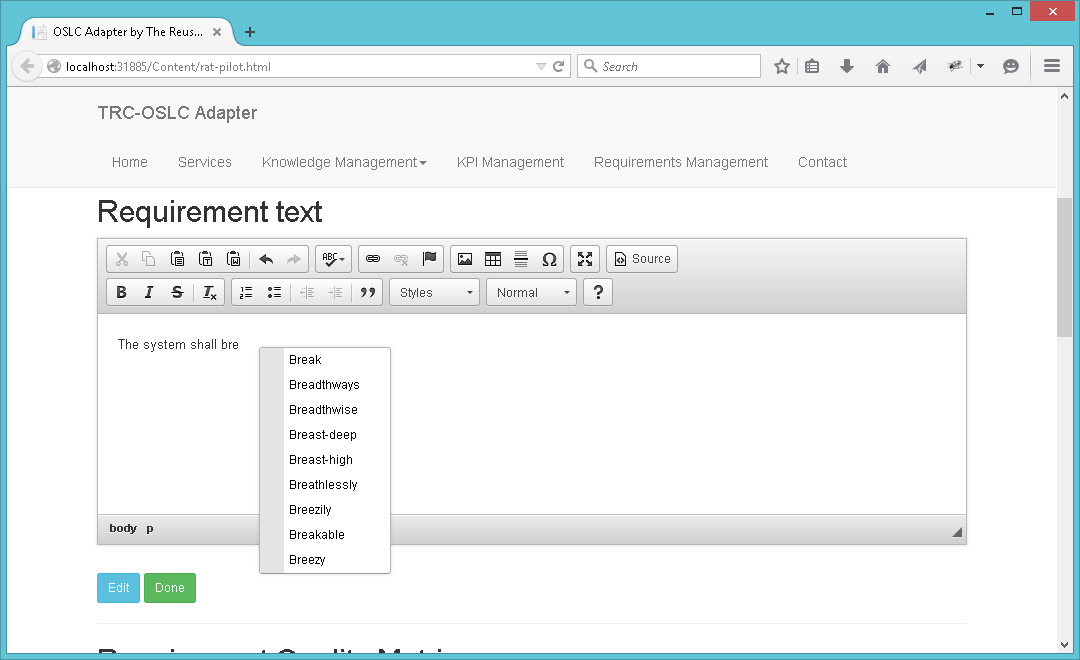
Vocabulary through OSLC in CKEditor
On-going work...

Process any kind of OSLC Resource or RDF data...
E.g. Modelica
Summary
- Use of the W3C Recommendations
- Concepts and relationships are the entities to be exchanged
- Services for: search, trace, naming, visualize, etc.

Metadata+Contents
Artifact
Advantages
- Standard exchange of data: RDF+OSLC
- Enhance expressiveness (RSHP)
- Reuse of existing standards and vocabularies
- Native Tool support (Knowledge Manager)
- Cross-cutting services (semantic-based)
- Elastic approach
- ...
Drawbacks
- Scope of knowledge management (needs)
- Potential overlapping with other tools and specs
- Need of spread the approach
Conclusions
-
Knowledge Management: a key process
-
REUSE!
-
- Need of:
- Reuse of standards and service-oriented functionalities (OSLC)
- Take the most for data exchange (RDF) and representation (RSHP)
- Bring technology to a human-oriented environment (NLP)
- Technical issues
- Completeness of the specification?
- Implementation
Future work
-
Merge and extend the spec with other knowledge standards
-
E.g. STEP, Industrial Internet activities
-
-
Refine of the resource shape
-
Full implementation and support to all services
-
Integration patterns governed by knowledge
-
...
Industrial Linked Data
OSLC applications
- Semantic Impact Analysis
- Risk Analysis
- Continuous Engineering
- ...

Speakers


-
Dr. Jose María Alvarez-Rodríguez
- Carlos III University of Madrid, Spain
- Member of INCOSE and the OSLC RM working group
- E-mail: josemaria.alvarez@uc3m.es
- WWW:
-
Prof. Dr. Juan Llorens
- Carlos III University of Madrid, Spain
- Member of INCOSE
- CTO of The Reuse Company Inc.
- E-mail: llorens@kr.inf.uc3m.es
- WWW:


OSLC-KM INCOSE 2015
By Jose María Alvarez
OSLC-KM INCOSE 2015
Presentation of the paper OSLC KM in INCOSE SI 2015.
- 2,096
